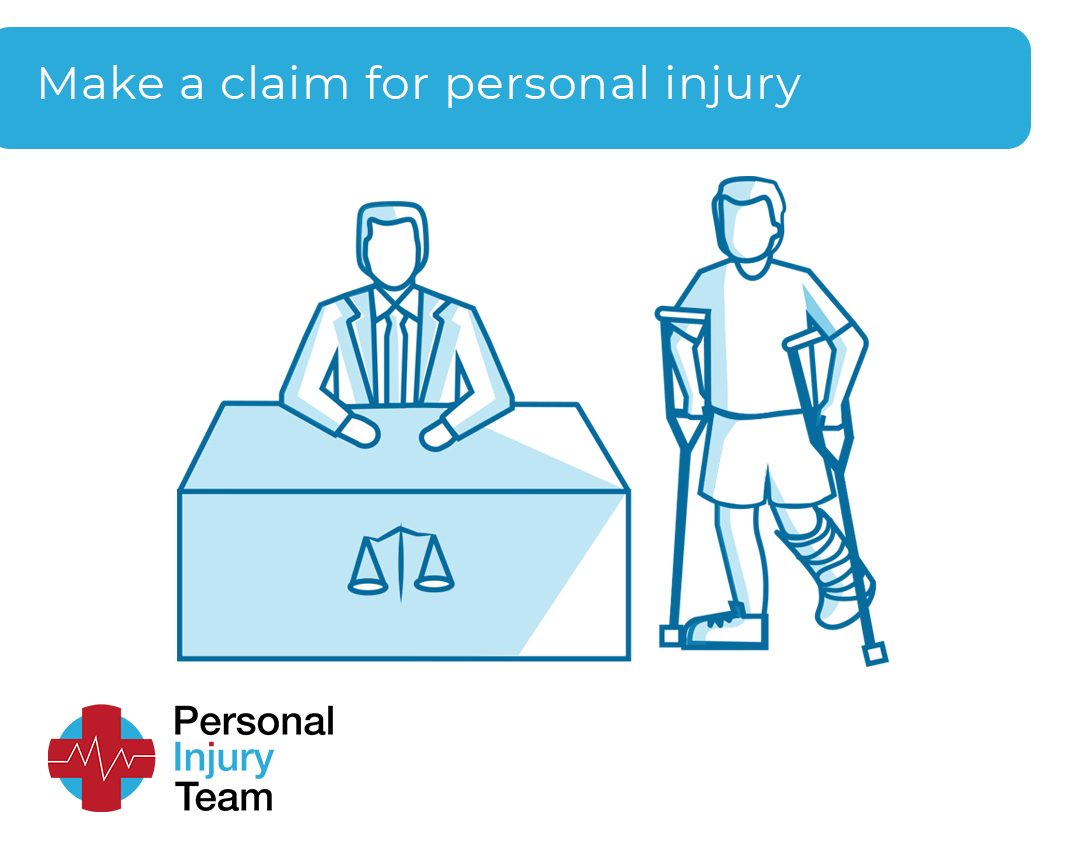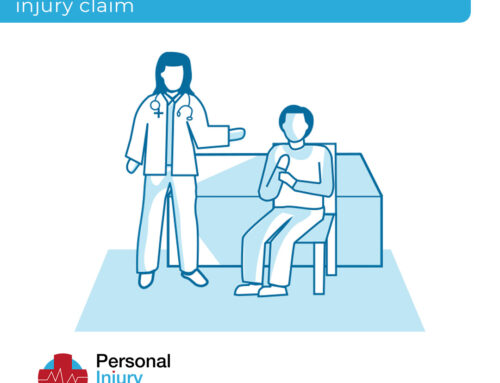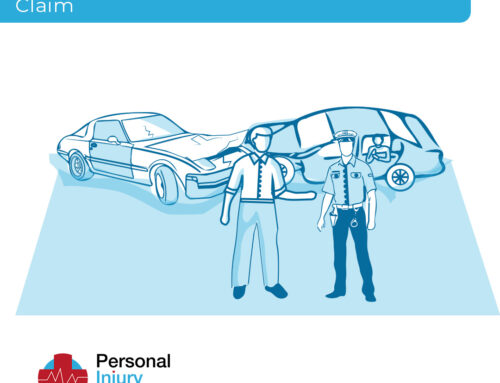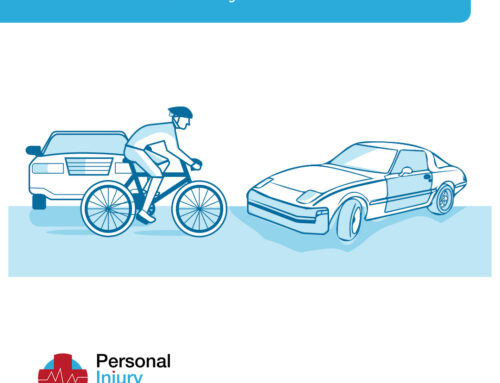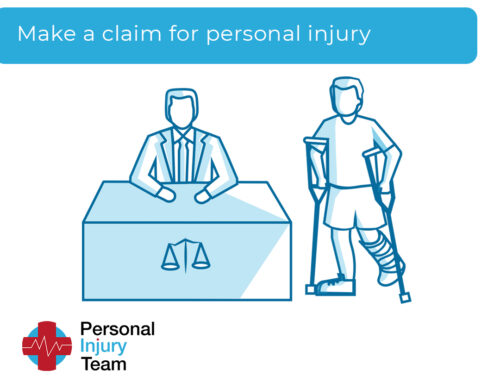A settlement agreement is a legal agreement between an employee and their employer. The settlement is legally binding and must only be signed when both sides are fully aware of what the agreement contains.
An employer will usually use a settlement agreement to solve ongoing issues with an employee. The settlement agreement could be used when cancelling an employment contract or to deal with an ongoing dispute between the employer and the employee.
Your employer may use a settlement agreement to resolve your personal injury dispute. It is vital that you have legal advice before signing any settlement agreement.
In the UK, a settlement agreement is only legally binding if you have received independent legal advice before signing the document.
A Personal Injury Team No Win No Fee solicitor can provide the legal advice you need when offered a Settlement Agreement in a personal injury compensation claim.
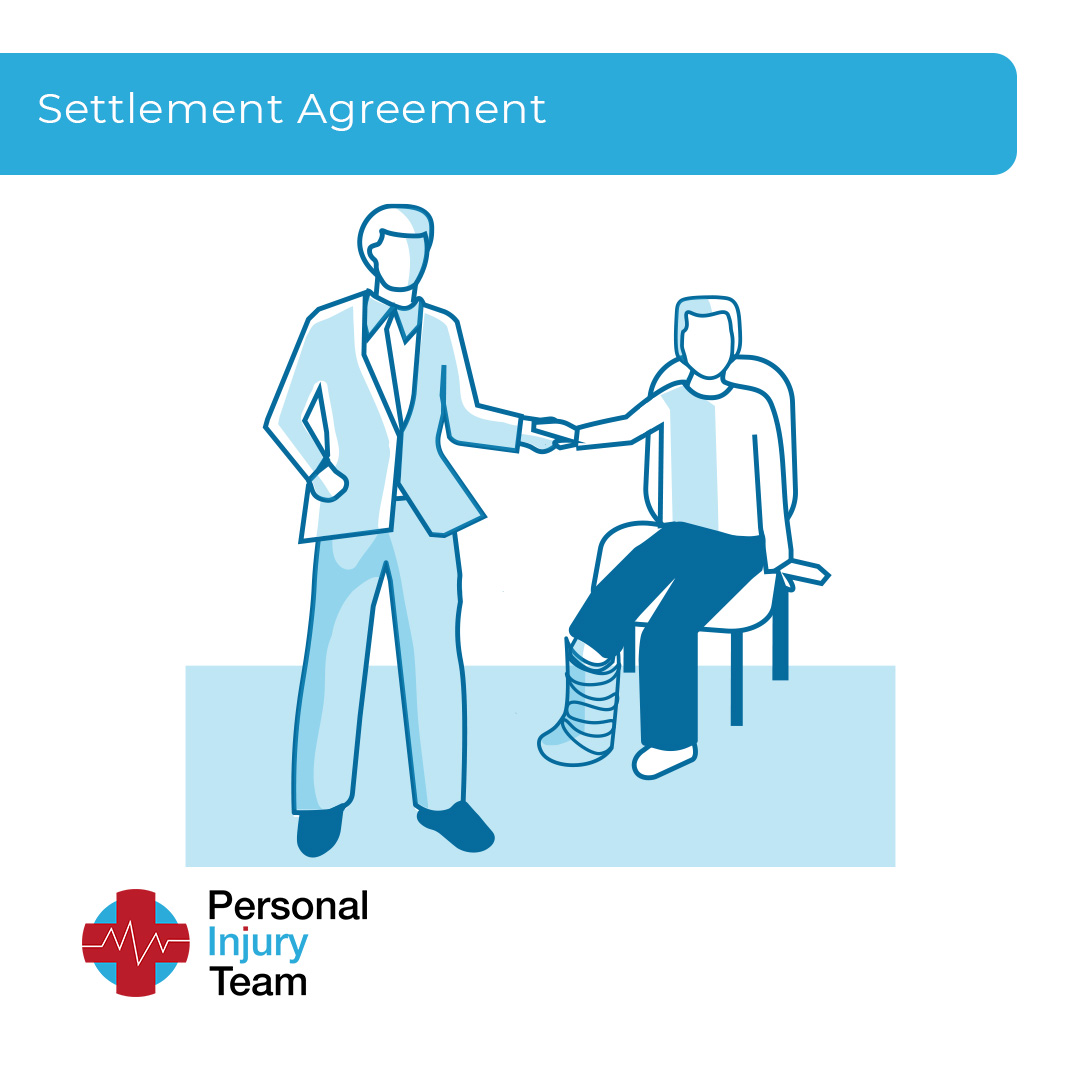
Table of Content
What is a personal injury claim in a settlement agreement?
A personal injury claim in a settlement agreement is when you agree compensation for the injury with an employer, alongside the other disputes. Your employer may try to deal with your workplace injury claim in a settlement agreement when finishing a work contract, if you agree.
For an employer, a settlement agreement may be a good way to tidy up any issues they have with you when cancelling a work contract.
The employer may wish to sort outstanding items such as holiday pay and monthly bonuses with a settlement agreement and could add a personal injury claim you may have with the company.
The employer must fully inform you, the employee, of everything in the settlement agreement and why it is included. For the employee, it is vital that they have legal advice throughout the settlement process, and they must not sign one without independent legal advice.
The Personal Injury Team has the experience in settlement agreements and in personal injury claims to give you that independent legal advice.
How do settlement agreements work?
A settlement agreement works by the employer and employee agreeing to all its terms and conditions. The employer will want to include all outstanding issues from a work contract, and the employee must ensure that all their outstanding issues are included.
A settlement agreement will only work when all parties are satisfied with what it contains. The independent legal advice the employee gets will help them determine whether their needs are included before signing the settlement agreement.
Every settlement agreement should be:
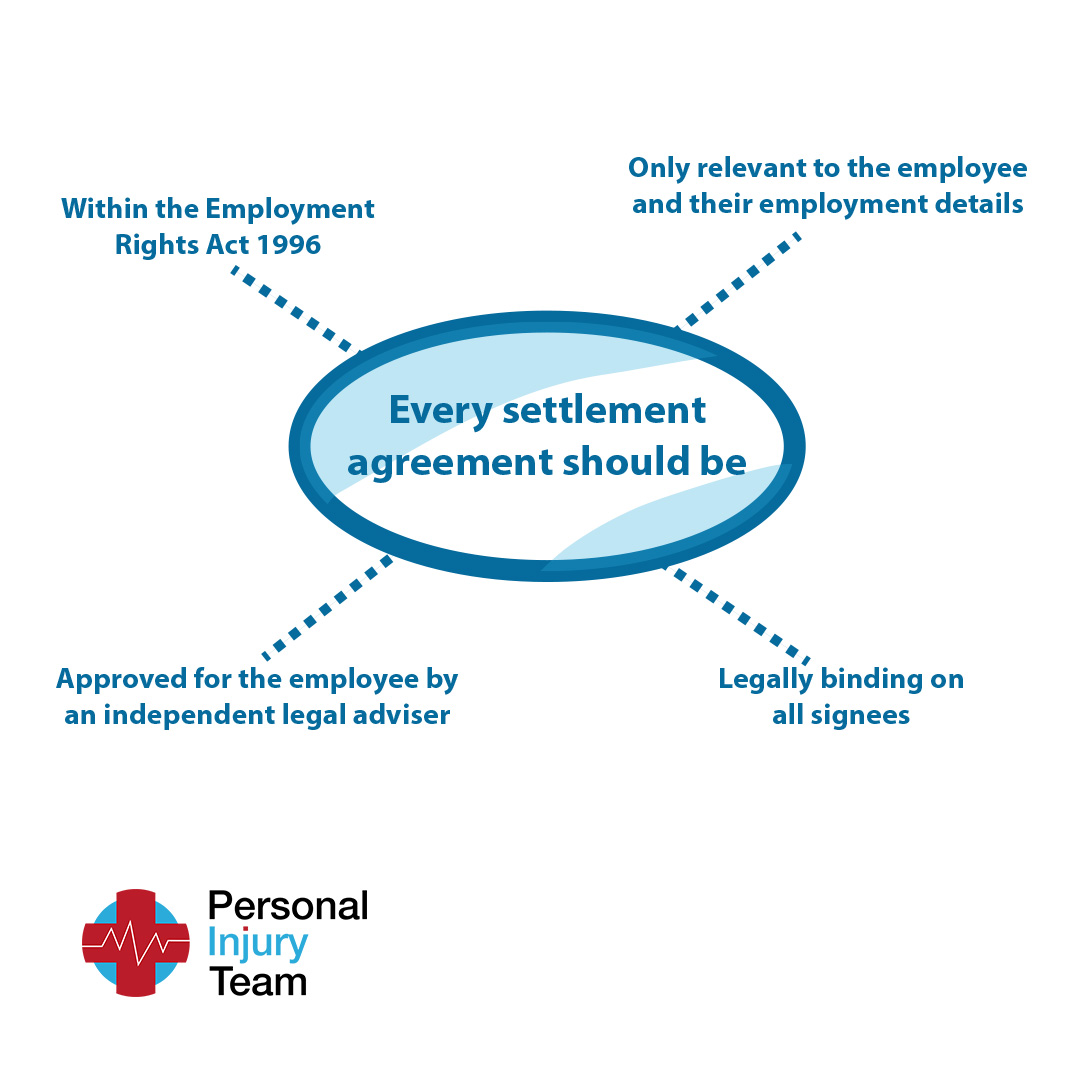
Once you sign a settlement agreement, and only after you have independent legal advice, you are obliged to follow what is in the agreement. You cannot seek to change the terms or express doubts once the document is completed.
A settlement agreement can only work when it is agreed upon, and both sides fulfil their obligations.
A No Win No Fee personal injury team solicitor can advise you what your rights are and when it is reasonable to sign the settlement agreement.
Can my workplace injury claim can be in a settlement agreement?
Yes, a workplace injury claim can be in a settlement agreement. If you have a personal injury due to negligence in the workplace, your employer may wish to include compensation in a settlement agreement.
The bullying in the workplace, the RSI from working without a break and the back injury from the warehouse could be part of any workplace injury claim. You may be able to claim compensation, and the employer can include a compensation payment in the settlement agreement.
The independent legal adviser can look at the settlement agreement and see if the terms of the personal injury payment are suitable to accept. You should not sign the settlement agreement if you are advised not to accept the personal injury payment.
The No Win No Fee personal injury solicitor can look at your workplace injury details and see if you have a valid personal injury claim.
When should I not sign a settlement agreement?
You should not sign a settlement agreement when you are not happy with the terms, feel that you are being pressured to sign, and if you have not received independent legal advice.
Your employer cannot tell you that you only have one chance to sign the agreement or that you do not need legal advice. An employer must follow the Employment Rights Act 1996 when drawing up the settlement agreement and not put undue pressure on the employee.
An employer cannot bar you from making a future personal injury claim for a workplace injury you do not know you have when signing the settlement agreement.
A back injury may arise after you leave a warehouse job, or you could develop a serious disease such as cancer sometime after leaving the job, which may have caused it.
If an employer has an idea that there could be future health issues, they cannot exclude you from claiming personal injury compensation by using the settlement agreement.
Mesothelioma, a form of cancer from working with asbestos, may not develop or be diagnosed many years from when you were in an employment. The employer cannot ask you to sign a settlement agreement where they know you may have been exposed to asbestos through the workplace.
A settlement agreement can benefit all parties involved, but you must always have independent legal advice before putting pen to paper.
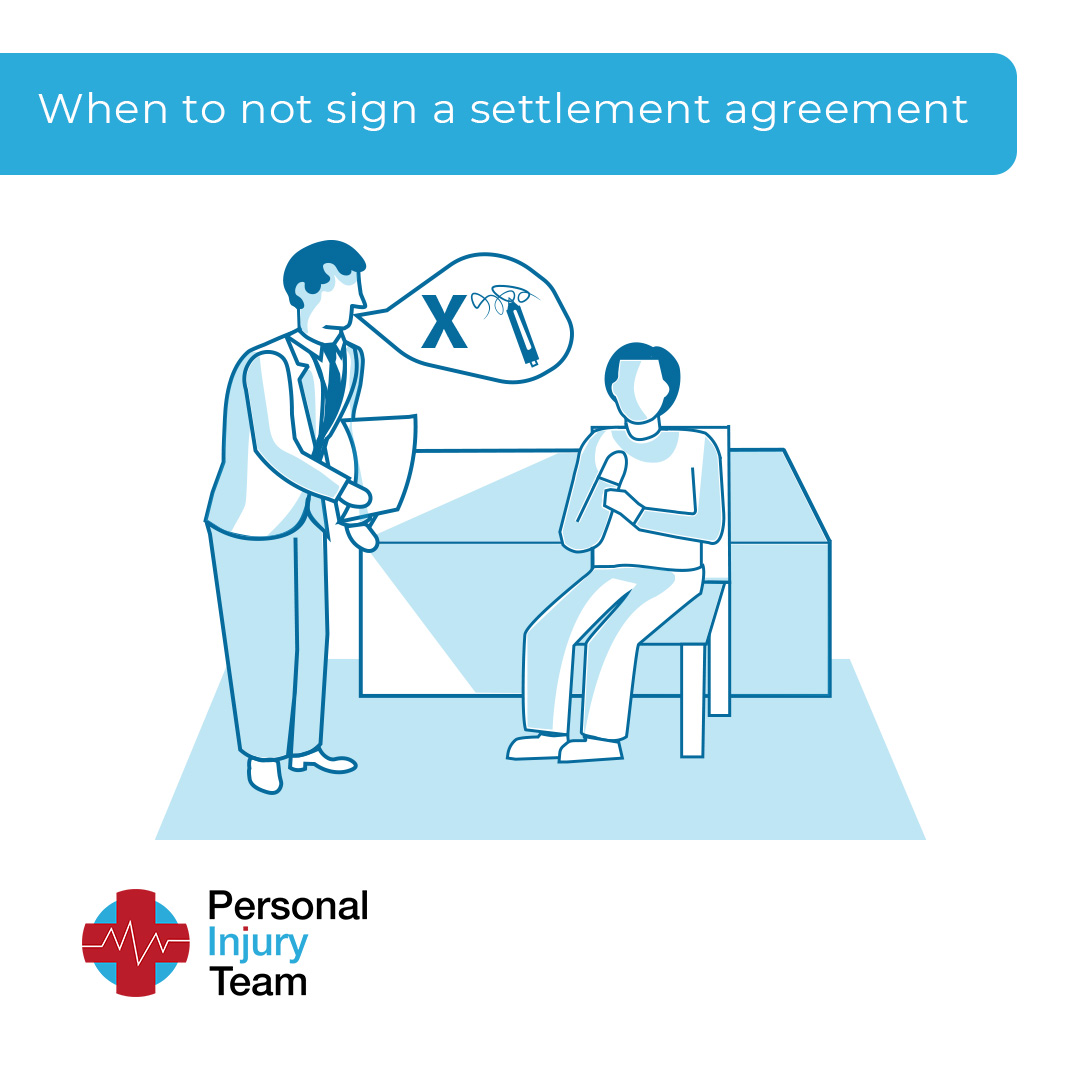
Can I have a personal injury claim and a settlement agreement?
Yes, you can have a personal injury claim against an employer and sign a settlement agreement. The personal injury claim is for the workplace injury, and you have a legal right to keep it separate from the settlement agreement, if you wish.
It may make legal sense to keep the personal injury claim as a separate matter from the agreement. You may wish to claim compensation for the injury and expect a higher award for all the damages you suffered due to the workplace injury.
Your employer may wish to offer injury compensation and include the details in the settlement; you can agree to the terms only if the No Win No Fee personal injury solicitor approves them.
You may also make a workplace injury claim after signing a settlement agreement, and a No Win No Fee solicitor can handle the compensation claim.
Using a No Win No Fee personal injury solicitor
Using a No Win No Fee personal injury solicitor can be the only way to guide you through the settlement agreement process. You will need to have someone by your side to support you when dealing with an employer.
The independent legal advice will be invaluable in knowing an employer’s responsibilities. Your solicitor can also see if there was a possible breach of any duty of care leading to a workplace injury.
The No Win No Fee personal injury solicitor can fight the workplace injury case and does not take a fee if you do not win. Before beginning the workplace injury claim, you can agree to all the terms with the solicitor.
The employer’s insurance company will pay some of the legal fees, and a No Win No Fee personal injury solicitor will agree with you on how much of the shortfall will come from the compensation.
It is usually a percentage of up to a maximum of 25%, although the deduction may be nothing in larger cases.
You will need an experienced No Win No Fee solicitor to make your personal injury compensation claim.
Contact the Personal Injury Team today
Contact the Personal injury team today to learn about settlement agreements and your legal rights when you could have a workplace injury claim.
Use our online assessment tool to find out how much you can claim for a personal injury. You may suffer pain and disability and contract a disease due to a workplace injury, and you may have a compensation claim.
A personal injury may be with you for life, and you may be able to claim compensation for the damages involved and get help dealing with the effects today and in the future.
The Personal Injury Team FREE online assessment tool will put you in direct touch with one of our team, who will give you a full rundown of what can happen with a workplace injury compensation claim.
We can get your workplace injury claim up and running today.
Contact your Personal Injury Team today for immediate and expert advice on personal injury and settlement agreements tailored to you.
